Catholics lose a powerful intellect in Benedict
The late Pope Benedict XVI was one of the most rigorous, forensic theologians ever to hold the papal office.
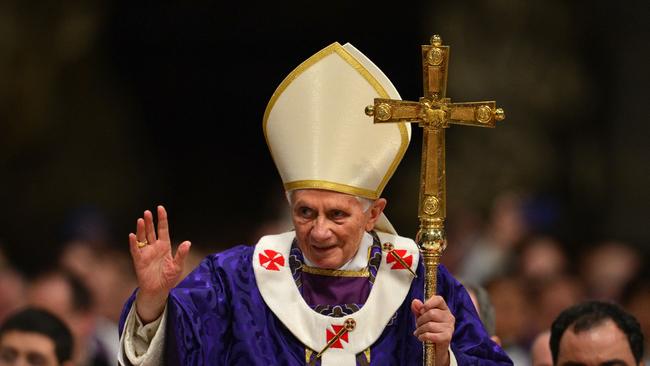
In his 2016 book Last Testament: In His Own Words, Benedict XVI explained his understanding of life after death: “God is so great that we never finish our searching. He is always new. With God there is perpetual, unending encounter, with new discoveries and new joy. Such things are theological matters. At the same time, in an entirely human perspective, I look forward to being reunited with my parents, my siblings, my friends, and I imagine it will be as lovely as it was at our family home.’’
That passage, sometimes quoted in funeral homilies, has comforted and given confidence to countless Christians who know the late pope was one of the most rigorous, forensic theologians ever to hold the papal office and one of the Catholic Church’s outstanding theologians of the 20th century. Never one to presume on God’s mercy, he also wrote that when he encountered the Lord, “I will plead with him to how leniency towards my wretchedness.’’
His reputation as a scholar using his powerful intellect and prodigious memory for decades of study, lecturing and writing, brought him the unjust, inaccurate moniker of “rottweiler’’ during his quarter century as the Catholic Church’s theological guardian during the papacy of John Paul II. By nature, Benedict was gentle, considerate, a skilled pianist and fond of cats.
His pursuit of truth, however, led him to step on toes. In the 1980s, inside the Vatican of John Paul II, the-then Cardinal Joseph Ratzinger led the intellectual fight against liberation theology, a left-wing theological ideology fostered in South America. Some of its elements did not come back into favour, ironically, until Pope Francis replaced him as Pope in 2013.
In his second year as Pope in 2006, he returned to the University of Regensburg where he had served as theology professor in the 1970s. He lectured on an important theme – that faith, untethered from reason, could result in violence and fanaticism. In a long lecture, he cited a 14th-century dialogue between a long-forgotten Byzantine emperor, Manuel II Paleologus, and a Persian scholar about violence and religion. “Show me just what Mohammed brought that was new, and there you will find things only evil and inhuman, such as his command to spread by the sword the faith he preached,” Benedict quoted the emperor as telling the Persian.
The speech sparked storms of protest from Muslim scholars and extremists, who killed a nun in Somalia and decapitated a priest in Iraq in retribution. While The Wall Street Journal declared “Benedict the Brave”, he was widely criticised from within the church — including, reportedly, by the future Pope Francis. Benedict later apologised for including the quote.
A stickler for quality traditional church music, architecture, liturgy, vestments and religious art, Benedict, in a 1985 interview, said that a theologian who does not love art, poetry, music and nature can be dangerous. “Blindness and deafness towards the beautiful are not incidental, they necessarily are reflected in his theology.’’
Members of the Anglican Communion who favour unity with the Catholic Church remain grateful for his role in creating a special Anglican Ordinariate to facilitate the use of some of their liturgies within the Catholic Church.
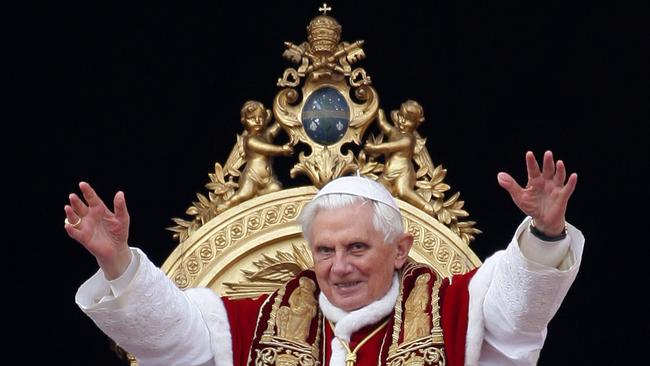
Always at his strongest on the Sacraments and theology, one of Benedict’s most important contributions to the life of the church and its faithful was his 2007 apostolic letter Summorum Pontificum.
Through painstaking analysis it recognised, that contrary to popular belief, the Traditional Latin Mass, while largely replaced with less transcendent, vernacular liturgies in 1970, had never been suppressed by the Second Vatican Council or any church authority. A revival of the old Mass, already under way, was turbo-charged, a trend Pope Francis is endeavouring to halt in his controversial apostolic letter Traditionis Custodes, issued in 2021. The battle royal will extend well beyond Francis’s Pontificate.
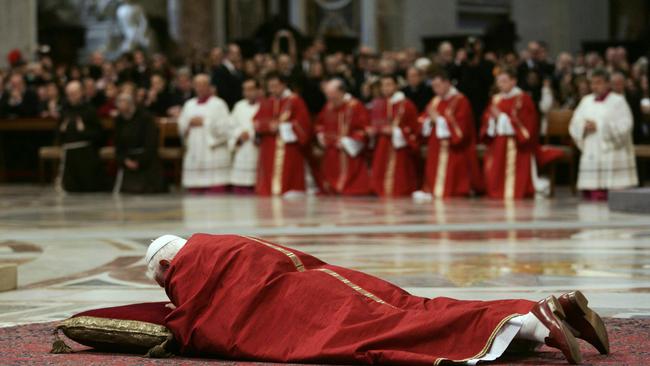
Benedict’s friend, German cardinal Gerhard Mueller, is compiling a compendium of the late pope’s writings. Time will tell whether it includes any further insights into the reasons behind his resignation in 2013.
For a man wedded to the “hermeneutic of continuity’’ it was an extraordinary rupture after 700 years of popes serving until the end of their earthly lives. The move distressed and confused many, from cardinals to lay people.

While insisting he lacked the energy and strength to continue in the daunting role, Benedict had, in fact, made significant progress on two of the major challenges of the era at the time of his resignation. First, he had started the wheels turning towards financial reform.
Second, while many others, before, during and after, talked about ‘zero tolerance’ of child sexual abuse he frocked several hundred priest culprits. He accepted the resignation of notorious US Cardinal Theodore McCarrick and banished Mexican priest Marcial Maciel, founder of the Legion of Christ, from active ministry to a life of prayer and penance after Pope John Paul II had failed to do so. Maciel, one of the church’s worst paedophiles, abused about 60 seminarians and young boys.
For all that, one of Benedict’s weaknesses as a leader appeared to be lapses in judgment of some of the characters who surrounded him and loyalty beyond the point of prudence.
As doctrinal watchdog under John Paul II, the secretary of his department was Italian archbishop Tarcisio Bertone. The year after he was elected pope, Benedict appointed Bertone secretary of state, an office he held for seven years.
In October 2017, a former president of the Vatican-owned Bambino Gesu children’s hospital in Rome, Giuseppe Profiti, was convicted by a Vatican Court of abuse of office for diverting almost $500,000 of funds to renovate Cardinal Bertone’s luxury, McMansion-sized apartment within the Vatican. Profiti received a 12-month suspended sentence.
His death, on the last day of the old year, will especially sadden Catholics who came of age or brought up children during his years serving Pope John Paul II and during his own Pontificate. His clear, faithful and logical writings, which advised parents to ensure their children grow up with strong roots and strong wings, will not be forgotten.


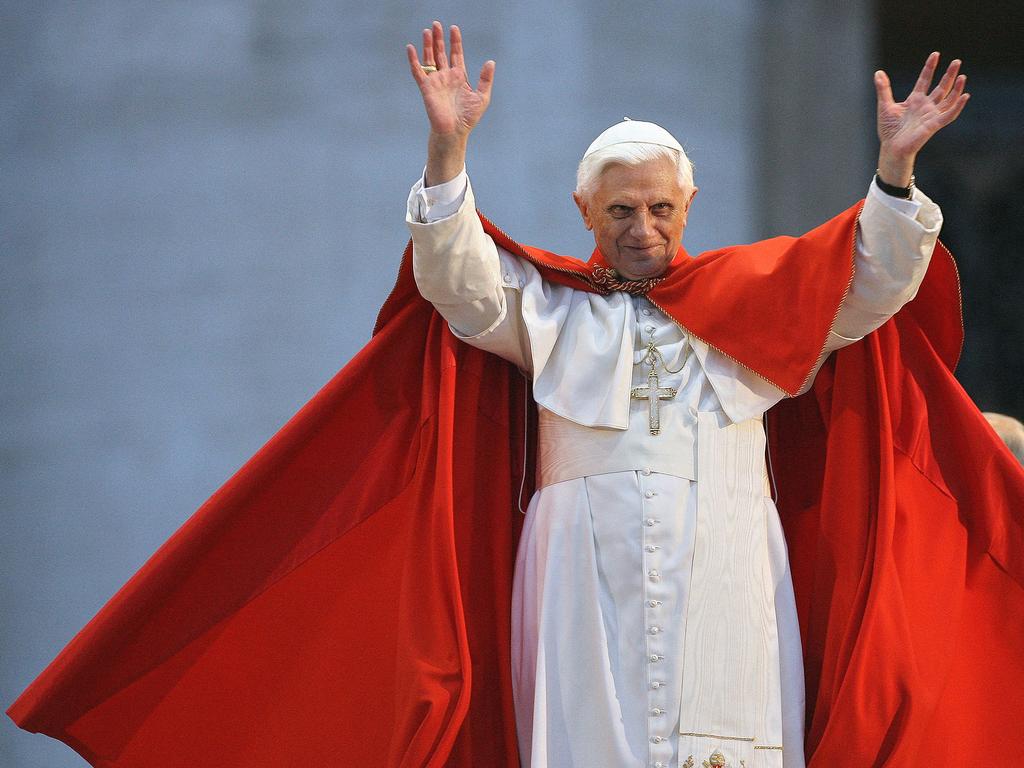
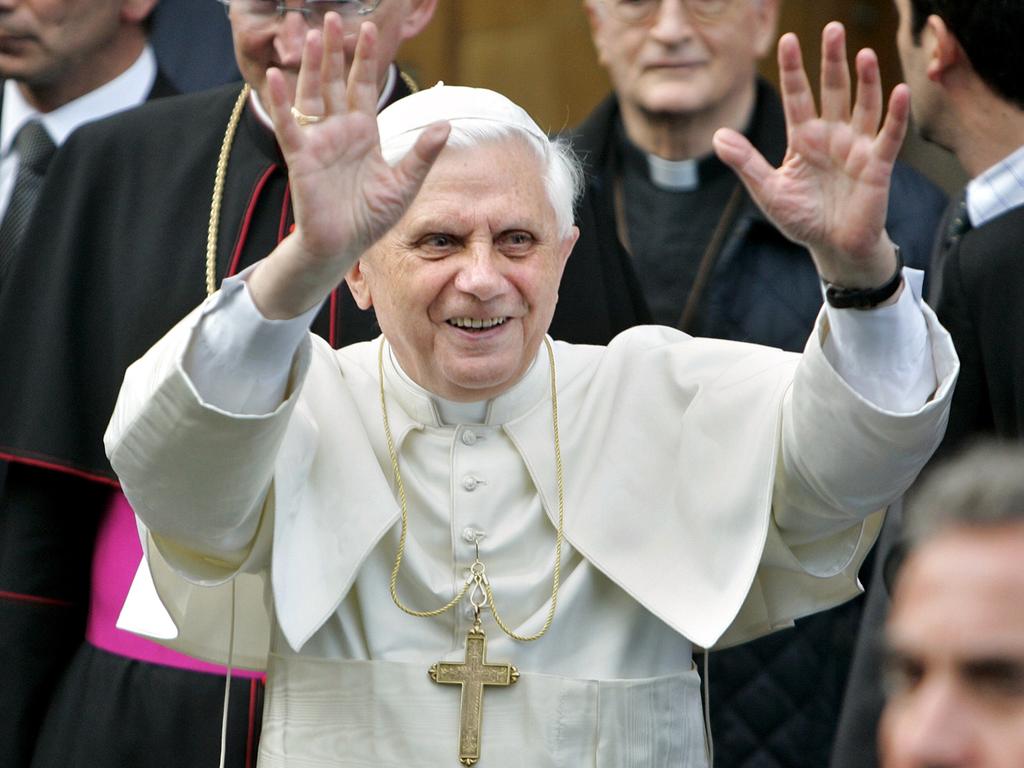


To join the conversation, please log in. Don't have an account? Register
Join the conversation, you are commenting as Logout